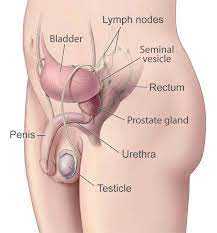Introduction:
Bladder cancer, a formidable adversary, demands a comprehensive understanding to navigate its complexities effectively. In this detailed blog post, we will delve into the intricacies of bladder cancer, drawing insights from reputable sources such as the National Cancer Institute (NCI), American Cancer Society (ACS), and Mayo Clinic. By exploring the nuances of bladder cancer, from its types and risk factors to symptoms, diagnosis, and treatment options, we aim to shed light on the question, 'What is bladder cancer?'
1. National Cancer Institute (NCI): Unraveling the Basics of Bladder Cancer
The NCI serves as a beacon of knowledge on bladder cancer, offerin g a comprehensive resource that covers the fundamental aspects of this condition.
g a comprehensive resource that covers the fundamental aspects of this condition.
Overview of Bladder Cancer:
The NCI provides a detailed overview of bladder cancer, outlining its types, risk factors, symptoms, and diagnosis. Understanding the basics is crucial for individuals seeking clarity on what bladder cancer entails. NCI - What Is Bladder Cancer?
Types of Bladder Cancer:
Bladder cancer manifests in various forms, and the NCI elucidates on each type, including urothelial carcinoma, squamous cell carcinoma, and adenocarcinoma. This comprehensive breakdown empowers individuals to comprehend the diverse nature of bladder cancer and its implications.
Risk Factors and Prevention:
NCI explores the risk factors associated with bladder cancer, such as smoking, exposure to certain chemicals, and chronic bladder inflammation. The resource also emphasizes preventive measures, offering insights into lifestyle choices that can mitigate the risk of developing bladder cancer.
2. American Cancer Society (ACS): Navigating Bladder Cancer Diversity
The ACS contributes valuable information about bladder cancer, focusing on its varied types, risk factors, diagnosis, and available treatment options.
Different Types of Bladder Cancer:
ACS delves into the nuances of bladder cancer types, spotlighting urothelial carcinoma as the most common form. The resource navigates through less common types, providing a comprehensive understanding of the diversity within bladder cancer.
Risk Factors and Prevention Strategies:
ACS aligns with NCI in detailing the risk factors associated with bladder cancer, emphasizing the role of smoking, chemical exposure, and chronic inflammation. The resource expands on prevention strategies, offering actionable insights for individuals looking to reduce their risk.
Diagnosis and Treatment Options:
Understanding the diagnostic process and available treatments is paramount. ACS walks individuals through the diagnostic journey, including imaging tests, cystoscopy, and biopsy. Treatment options, ranging from surgery and chemotherapy to immunotherapy, are explored, providing a holistic view of managing bladder cancer. ACS - About Bladder Cancer
3. Mayo Clinic: Condensed Insights into Bladder Cancer
The Mayo Clinic, known for its medical expertise, condenses information about bladder cancer, offering a concise yet informative overview.
Overview of Bladder Cancer:
Mayo Clinic provides an overview of bladder cancer, encapsulating its symptoms, causes, risk factors, and available treatment options. The succinct presentation ensures accessibility for individuals seeking foundational knowledge on bladder cancer. Mayo Clinic - Bladder Cancer
Symptoms and Causes:
Mayo Clinic outlines the symptoms of bladder cancer, from blood in urine and pelvic pain to frequent urination. By understanding these warning signs, individuals can seek prompt medical attention. The resource also explores the causes of bladder cancer, shedding light on the multifaceted nature of this condition.
Treatment Options:
A concise exploration of treatment options, including surgery, immunotherapy, and chemotherapy, equips individuals with foundational knowledge. Mayo Clinic ensures that individuals grasp the spectrum of interventions available for managing bladder cancer.
4. Keyword Integration: What Is Bladder Cancer?
To address the central query, 'What is bladder cancer?' we need to synthesize the insights gleaned from NCI, ACS, and Mayo Clinic. Bladder cancer, in essence, is a diverse group of malignancies affecting the bladder, characterized by abnormal cell growth. It encompasses various types, predominantly urothelial carcinoma, with risk factors ranging from modifiable lifestyle choices to occupational exposures.
5. Conclusion: Empowering with Knowledge
In conclusion, understanding 'what is bladder cancer?' is a multifaceted journey that involves comprehending its types, risk factors, symptoms, diagnosis, and treatment options. The collaborative insights from NCI, ACS, and Mayo Clinic provide a robust foundation for individuals seeking clarity on bladder cancer. By empowering individuals with knowledge, we aspire to foster proactive engagement, early detection, and informed decision-making in the face of bladder cancer.










